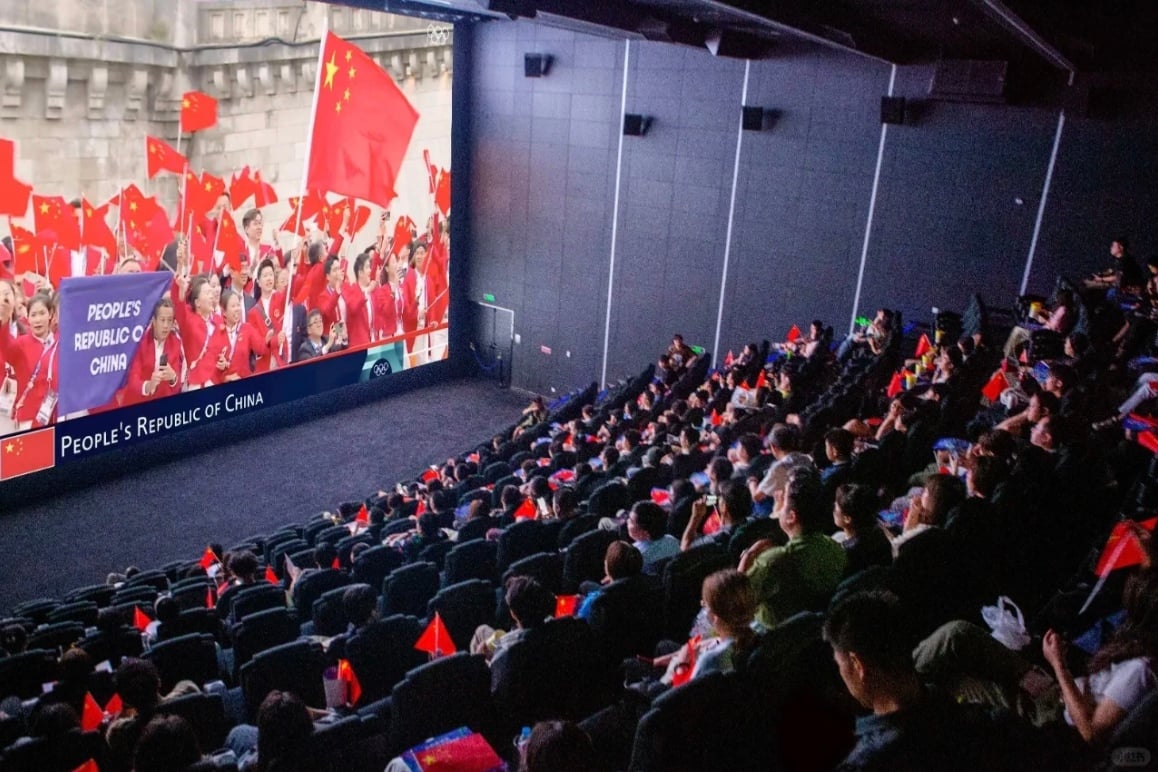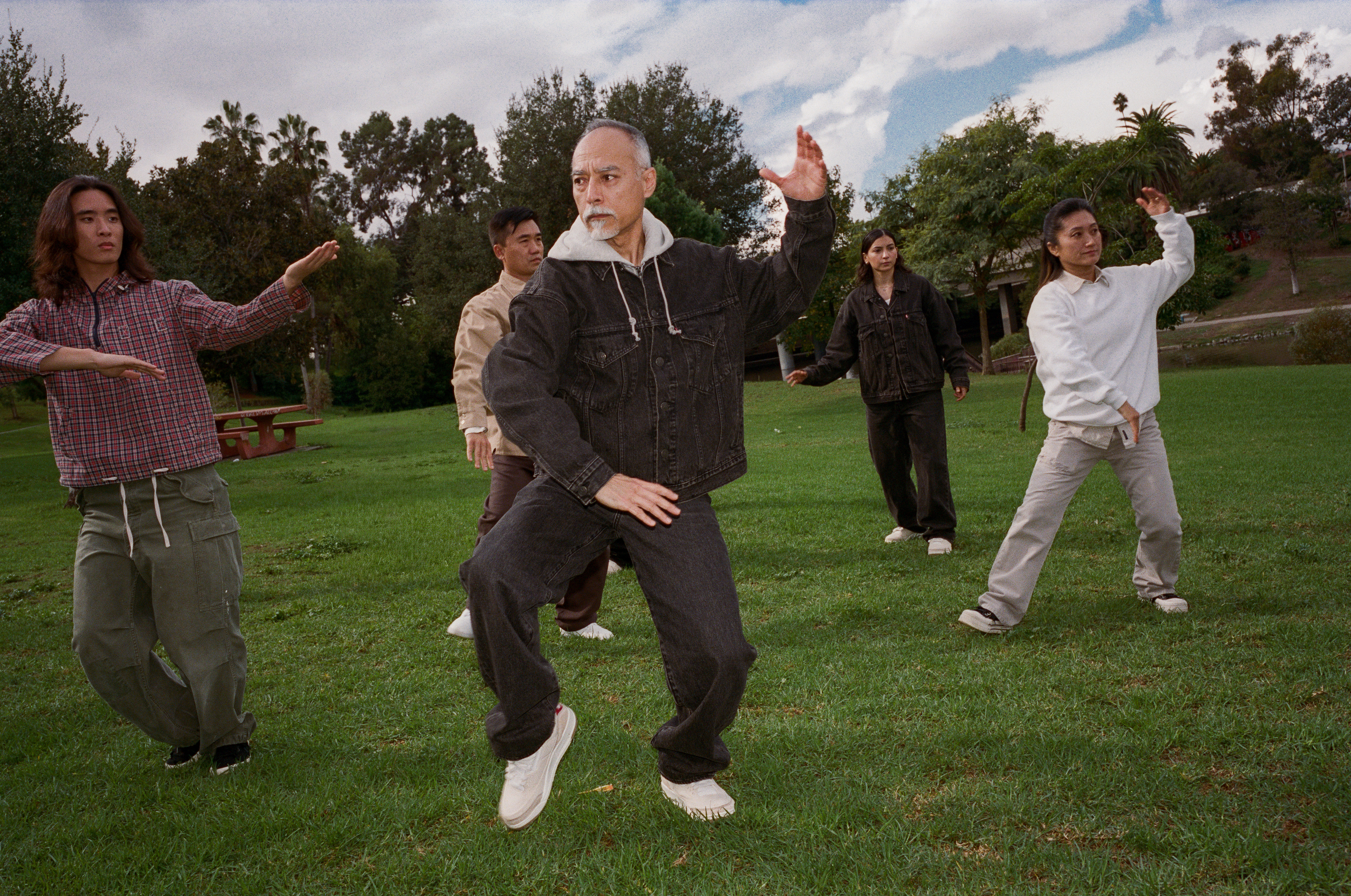It’s no secret that the Olympics can make sports fans out of people that usually don’t follow athletic competitions. But for some young Chinese people, even sitting on a couch watching the Games on a television is unattainable luxury: students and young professionals who have moved from their hometowns to big cities like Beijing and Shanghai often have to share small apartments with friends or even strangers. Many of these apartments, known by the epithet lǎopòxiǎo (老破小, literally old, broken, and small), have been converted from single-family homes to maximize tenancy. As a result, such rental apartments frequently have unusual layouts lacking proper living rooms or dining areas. So for people who don’t have a living room, watching the Olympics via streaming on a phone or tablet might be the best option.
However, this year there’s a new way to watch the Games. In July, China Film Co., Ltd.’s Beijing Film Distribution Branch announced an exclusive partnership with China Central Television’s Central Broadcasting Satellite Television Company to distribute 2024 Paris Olympics broadcasts to cinemas across the Chinese mainland. Since the Olympics kicked off, heading to the cinema to watch the Games has become an increasingly popular activity for young people.

Tickets can conveniently be purchased in Maoyan, an app usually used for movie tickets. After a minimum number of reservations for an event is reached (usually around five to ten), a screening will be arranged. The physical gathering amplifies the excitement of competitive sports, with viewers cheering loudly for every point scored and reacting visibly to missed opportunities. When Chinese athletes win medals, the entire cinema often joins in singing the national anthem.

Watching the Olympics in a cinema costs roughly around the same as a movie ticket, in the range of 30 to 80 RMB depending on the city and theater in question. For cinemas, this represents a novel attempt to revive the sluggish film market, and viewers are loving the experience, which is reminiscent of the fan zones organized for international sporting events, but also harks back to an earlier time when television ownership was limited in China (for different reasons), and media consumption was a more collective experience.
Banner image via Xiaohongshu.


















